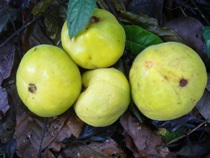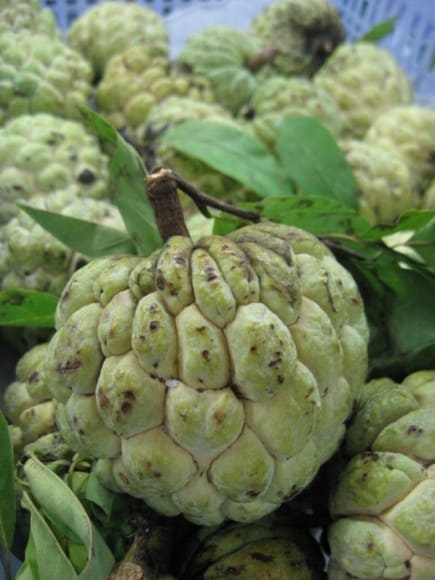The fig is a tasty member of the ficus family that has been cultivated by humans for thousands of years. The fig probably originates in Asia, but it has since spread all over the world, preferring temperate dry climates for the best fruit production. Fig remnants have been recovered from Neolithic sites, as well as from ancient Greece and Rome, indicating that humans and figs have a long, illustrious, and delicious history together. Figs come in a number of types and varieties, some of which are more widely cultivated than others.
Fig trees can grow up to 50 feet (15 meters) tall and are very wide and sprawling. They will choke out any growth underneath them, so caution is advised when planting them. For maximum fruit production, figs need full sunlight, and they prefer areas with minimal wind. The plant has shallow, spreading roots and large leathery leaves with deep lobes. The exterior of a fig can range from pale green when ripe to almost black, and usually, the rind of the fig can be eaten along with the contents.
Benefits of Figs
- Figs are a fantastic source of vitamin B6. B6 is responsible for producing mood-boosting serotonin, lowering cholesterol and preventing water retention, all characteristics that help balance the moods of a menstruating woman. Also, hormonal forms of birth control (such as the pill or the patch) deplete vitamin B6, so those using this method of birth control should try to eat more foods that are rich in B6- like figs.
- Figs are very high in dietary fiber, which makes them an ideal weight-loss aid. Fiber creates a feeling of satiety, or fullness, which means that you will feel more full and eat less. Fiber also regulates the digestive system and alleviates the symptoms of Irritable Bowel Syndrome, a common female ailment.
- Fruit fiber from figs and other fruits has been shown to help prevent breast cancer in pre-menopausal women and also protects against age-related macular generation that leads to vision loss.
- The high calcium content of figs promotes bone density and can guard against osteoporosis, another common female ailment.
- Figs are one of the most alkaline fruits; alkalized foods and water are important for a balanced system since most of us consume a highly acidic diet in an acidic environment.
- One serving of figs (three large figs) provides 14% of your daily value ofmanganese, a very important trace mineral that most women are severely lacking in their diets.
- Figs are an excellent source of potassium, a necessary mineral for the active woman to insure than her muscles work well and are cramp-free
Maximising the benefits
Figs can be eaten fresh, dried or semi-dried. Figs are a source of potassium, calcium, iron and magnesium.


Niki Gilgan
Hey, can I use your article on my website with a linkback?